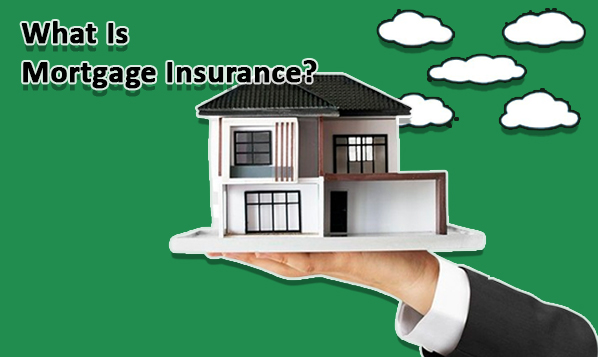Mortgage insurance is crucial for numerous home buyers, especially those who make a down payment of less than 20% of the home’s purchase price. This type of insurance protects lenders by mitigating the financial risk associated with lower equity in the event of a borrower’s default on their loan. While this coverage type increases the overall cost of homeownership over time, it enables potential homeowners to secure a mortgage they might not qualify for otherwise.

To aid you in making informed decisions on your path to homeownership, we have compiled comprehensive and pertinent information regarding mortgage insurance. This discussion will cover the definition, how it works, the various types available, as well as the benefits and drawbacks.
What Is Mortgage Insurance
Mortgage insurance is a specialized form of coverage that protects lenders from financial losses if borrowers default on their loans. Borrowers are typically required to obtain mortgage coverage when their down payment on a home is less than 20%.
There are two primary categories of mortgage coverage, and the specific type you choose generally depends on your circumstances and the requirements of your mortgage lender. In addition to government-backed options, primarily offered by the Federal Housing Administration, private mortgage insurance (PMI) is available through private insurance companies.
Although mortgage insurance may increase the cost of homeownership, it facilitates access to financing for prospective home buyers with smaller down payments. This has made owning a home more attainable and affordable for those aspiring to purchase property.
How Does It Work
The details of mortgage insurance are largely influenced by the type of loan you possess and the specific policy you opt to purchase. For conventional mortgages, borrowers must pay for mortgage coverage if their down payment is less than 20% of the home’s purchase price. If you contribute less than 20% of the home’s value, you are typically required to obtain this type of insurance.
If you make a down payment of less than 20% on the home you are acquiring, the insurer requires you to obtain mortgage coverage to reduce the risk of payment defaults that could result in financial loss. Regardless of whether you have this coverage, you remain responsible for repaying the loan amount borrowed from the lender. Should you fail to make payments or cease payments entirely, there is a significant risk of losing your home through foreclosure. It is important to understand that mortgage coverage primarily protects the financial interests of the lender rather than your own.
Types of Mortgage Insurance
Various types of mortgage coverage are available to home buyers, and the specific type you select will depend on your loan type, personal needs, and circumstances. Common examples include:
- Private mortgage insurance (PMI)
- FHA mortgage insurance premium (MIP)
- USDA guarantee fee
- VA funding fee
If you have a conventional loan with a down payment of less than 20%, you will be required to obtain private mortgage insurance. To identify the most suitable type of mortgage policy for your situation, it is advisable to consult your lender, as they can provide detailed information regarding the requirements associated with your loan type. Additionally, seeking advice from a financial advisor may offer further insights.
How Much Does it Cost
The cost of mortgage coverage is determined by a wide range of factors. Insurance companies typically evaluate several criteria before setting your premiums. Key factors influencing the cost of mortgage policy include:
- Type of mortgage
- Credit history
- Debt-to-income ratio
- Loan size
- Loan term
- Loan types
- Down payment percentage
- Property type
Moreover, the cost of mortgage insurance can vary significantly among different insurance providers. The specific insurer from whom you purchase the policy will also impact the premium you are charged.
Advantages and Disadvantages of Mortgage Insurance
This primarily benefits the lender rather than the borrower. Nevertheless, it provides home buyers with the opportunity to obtain financing for their desired property. If you are considering a mortgage, it is essential to comprehend the advantages and disadvantages associated with borrowing. To assist you in making well-informed decisions, we have outlined the advantages and disadvantages of mortgage policy below:
Advantages
- It accelerates the accumulation of equity.
- It enhances accessibility for prospective home buyers.
- It allows for greater financial flexibility for other expenses.
- It eliminates the necessity of a 20% down payment to secure a mortgage.
Disadvantages
- It protects the financial interests of the lender, not the borrower.
- It increases the overall cost of homeownership over time.
- The cancellation of the policy can be challenging.
FAQs on Mortgage Insurance
Is mortgage insurance mandatory?
This depends on the type of mortgage and the amount of the down payment. For conventional loans with less than a 20% down payment, it is typically required. Conversely, borrowers with FHA loans are obligated to pay mortgage insurance premiums, with the duration of payments contingent upon the down payment size.
Is it tax-deductible?
Regrettably, mortgage insurance is not tax-deductible. Homeowners will not benefit from tax deductions related to mortgage coverage unless such provisions are available in their state.
How can I avoid buying mortgage insurance?
There are multiple methods to eliminate mortgage policy. One straightforward approach is to either reduce your loan balance or refinance. Additionally, once you achieve 20% equity in your home, you may request the cancellation of the policy from your insurance provider.

